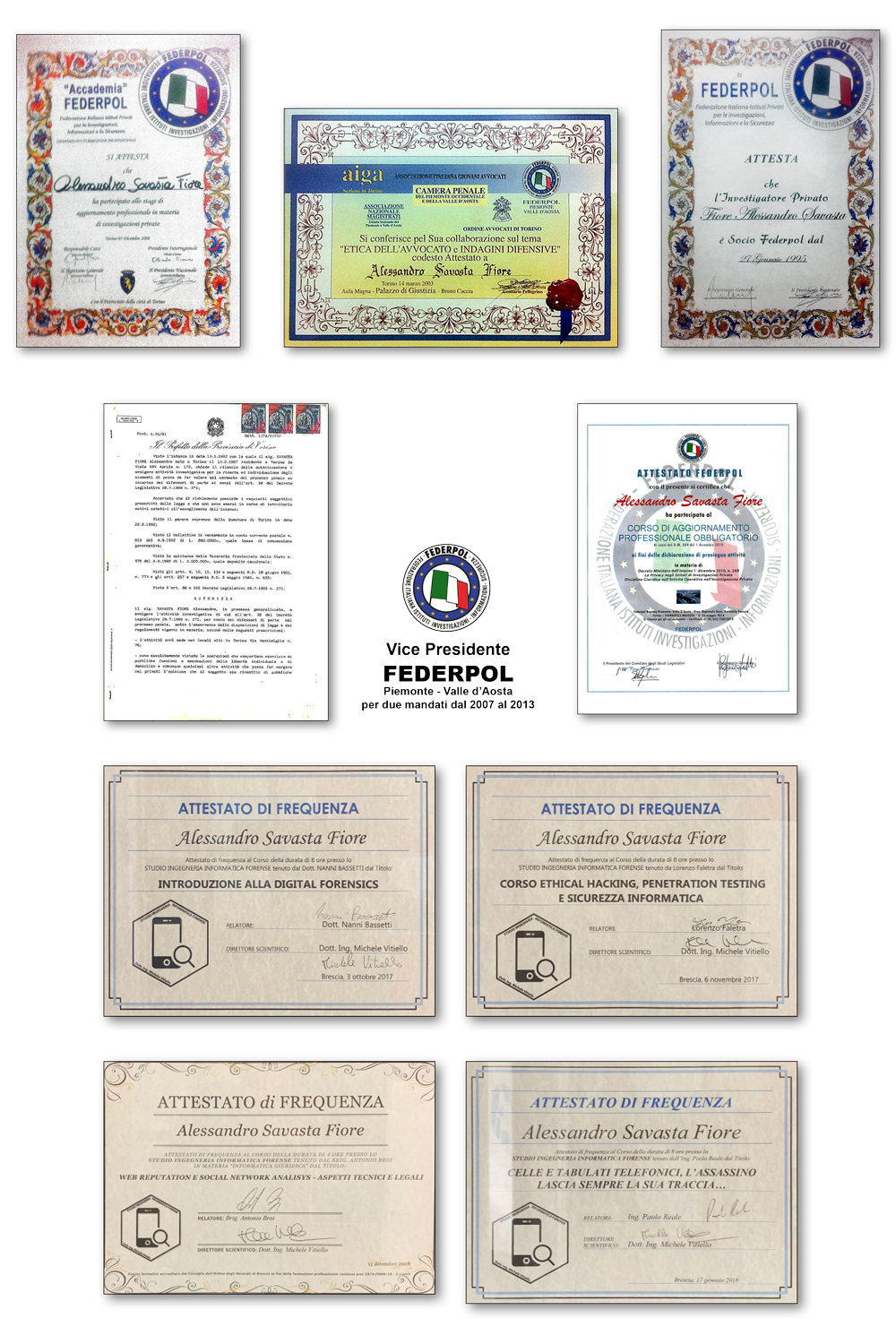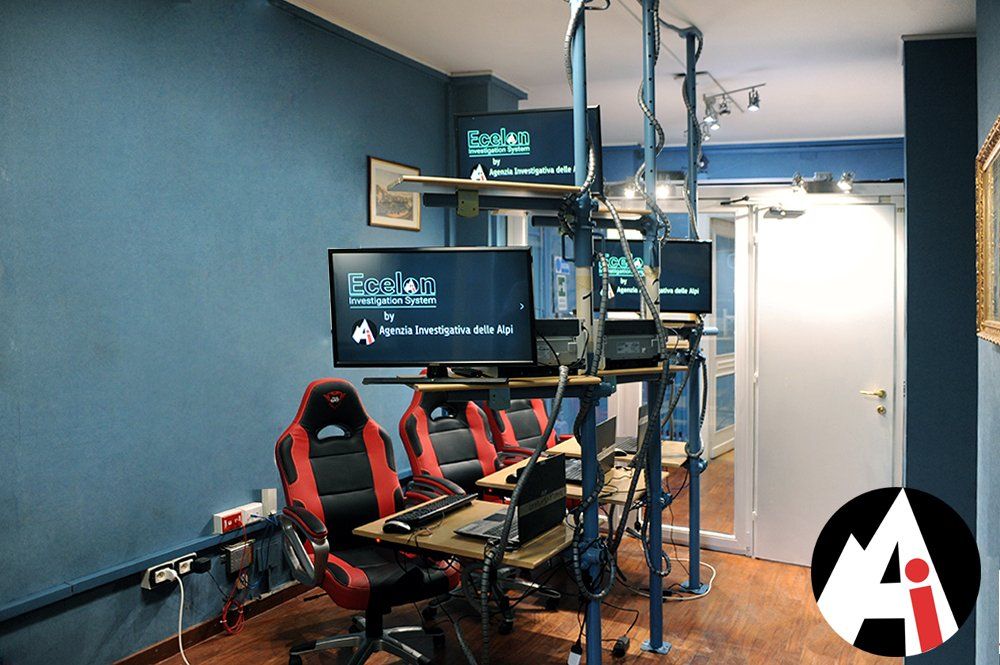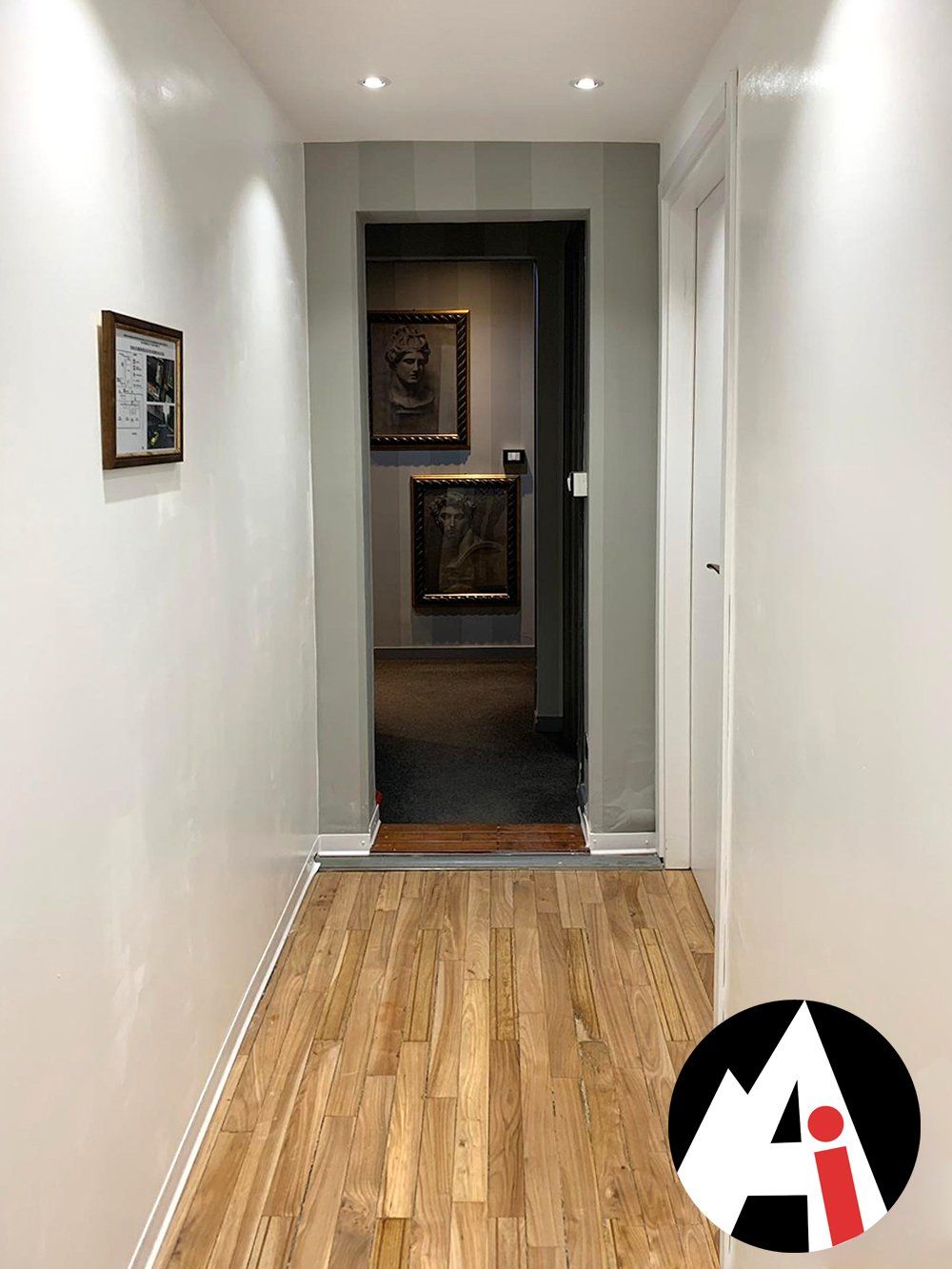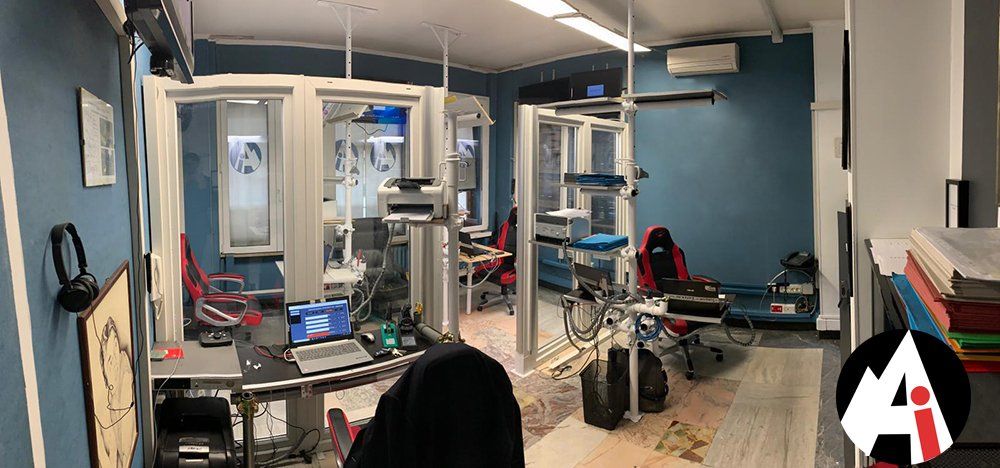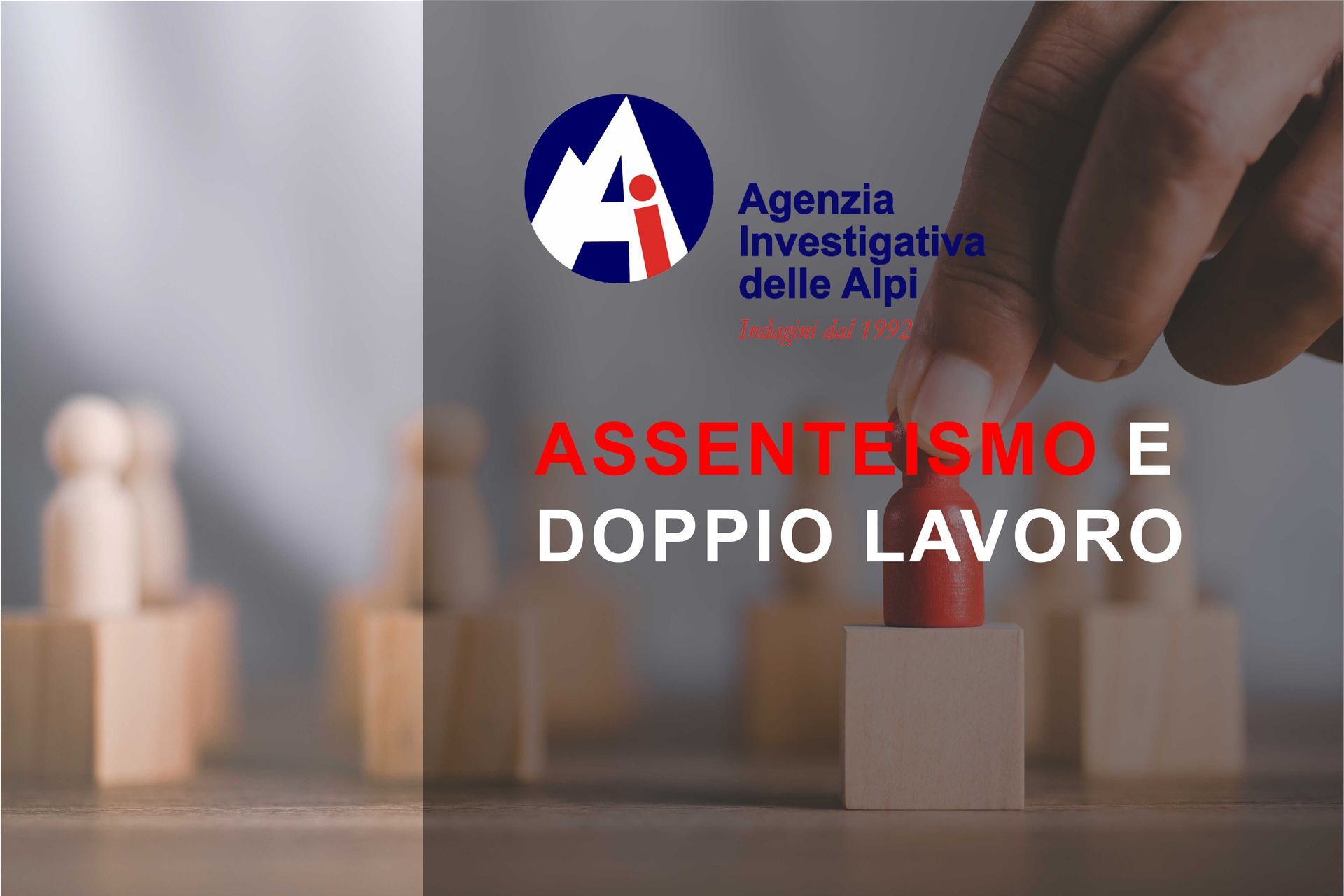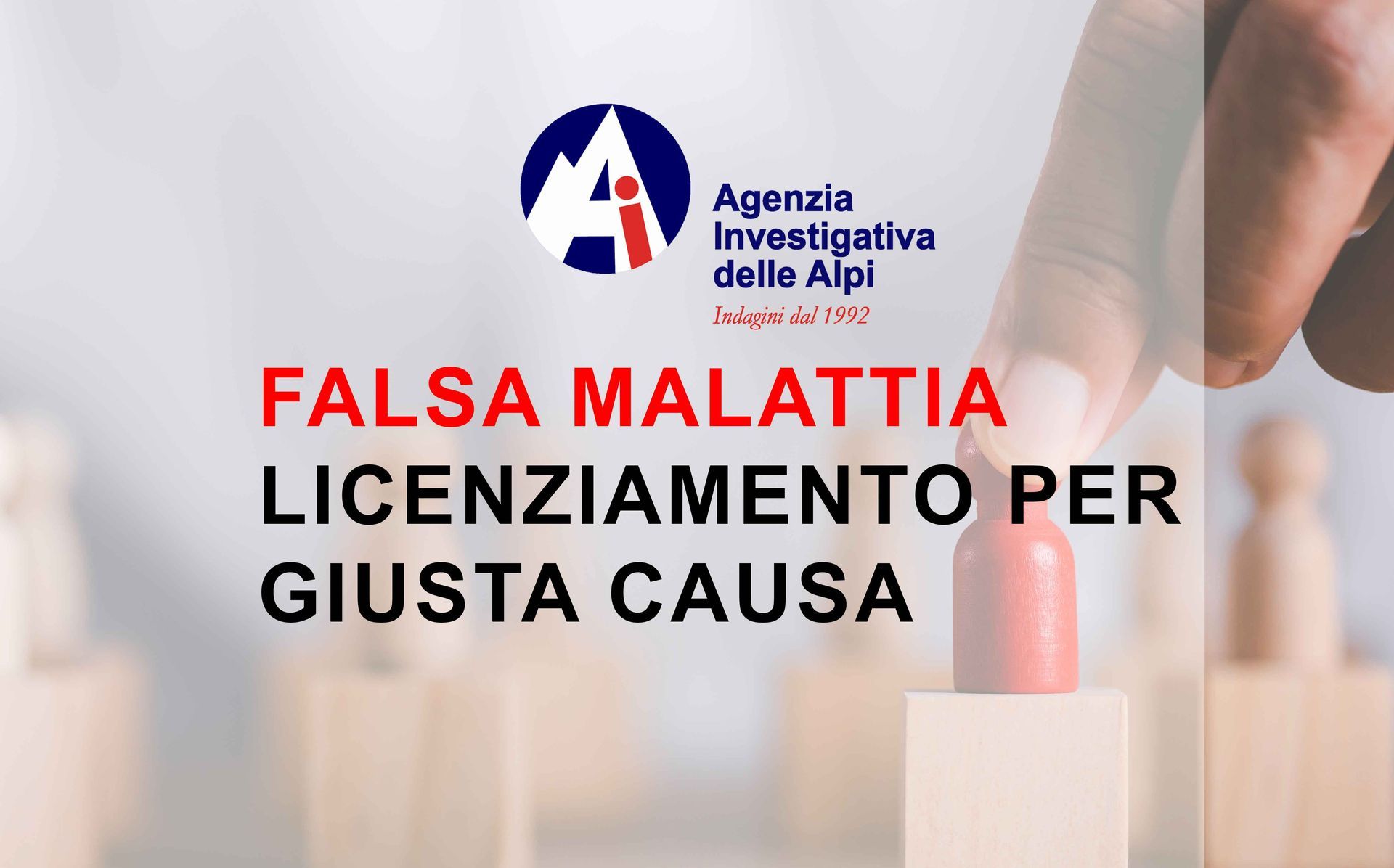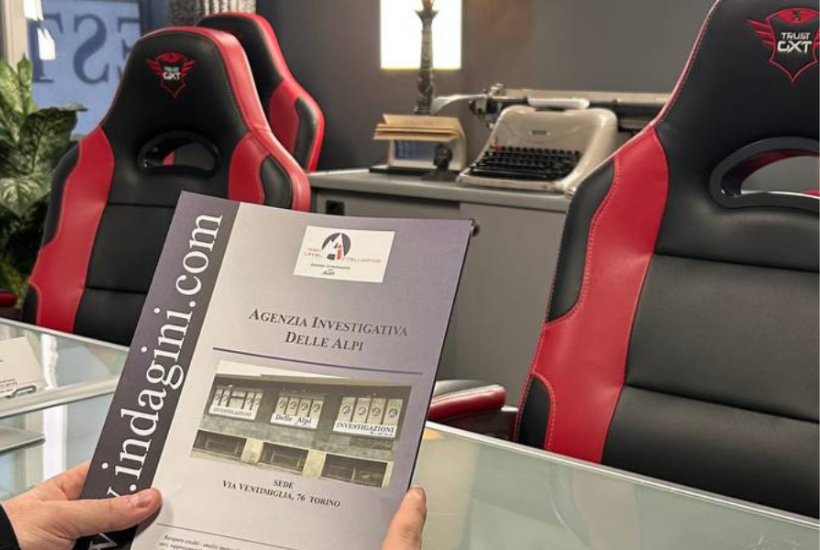Absenteeism at Work
Investigations for Absenteeism at Work, the Role of the Investigative Agency. How Workplace Absenteeism Investigations are carried out and what are the benefits.
The Alpine Investigation Agency has been carrying out investigations for individuals and companies since 1992, with particular reference to the resolution of corporate and managerial problems such as situations of absenteeism from work, carried out by employees, without valid justification. The investigative activity carried out is reported in an investigative report, valid during the judgement. This behavior can have impacts on productivity, team morale and the company bottom line.
ABSENTEEISM AT WORK: WHAT IS IT?
Absenteeism at work occurs when an employee is absent from the workplace for a more or less prolonged period of time without providing a valid reason. Often citing fictitious justifications with for example false certificates designed to simulate illness or injury. Other tools may include permits granted pursuant to Law 104/92 and trade union permits, which are granted for specific purposes, which can be used improperly.

What the Absenteeism Law says:
The Civil Code regulates the duties of employees and the maximum limits of absences, some obligations are indicated below:
- Diligence and Loyalty:
The employee is legally obliged to fulfill the duties established by the employment contract. Diligence, as established by article 2104 of the Civil Code, requires the worker to carry out the work activity with commitment, taking into account the interests of the company and national production. Diligence becomes a guiding light, orienting the employee towards a work performance that respects the required standards. At the same time, Article 2105 of the Civil Code emphasizes the obligation of loyalty. This means that the employee must not engage in competing activities or disclose confidential company information. Loyalty constitutes the foundation of mutual loyalty between employer and employee, consolidating trust in the working relationship;
- Maximum Limits of Absences and "Conduct":
Although absenteeism itself is not prohibited, Italian law establishes maximum limits on absences known as "comporto". These limits, expressed in working hours or days, act as a barrier to ensure that absence from work is justified and kept within reasonable parameters. The distinction between "dry behavior" and "summary behavior" further enriches the regulatory framework. The "dry behavior" refers to continuous periods of absence, while the "summary behavior" considers non-homogeneous periods of lack of work performance. This differentiation reflects the sensitivity of the law towards different types of absenteeism, allowing a flexible approach to various situations.
In conclusion, the detailed analysis of employee duties and maximum absence limits highlights the complexity and precision with which Italian law regulates absenteeism in the workplace. These principles act as a compass for employer and employee, outlining the boundaries of the working relationship and ensuring that mutual expectations are clear and respected in the legal context.
THE CONSEQUENCES OF ABSENTEEISM AT WORK
What are the consequences? In the workplace, the term absenteeism is a term designed to identify the behavior carried out by an employee who is absent from the workplace for a period of several days, of his own volition and in an unjustified manner. An employee who practices absenteeism risks disciplinary sanctions and in more serious cases even dismissal for just cause may be an option. It is useful to underline that dismissal, however, depends on various factors including the frequency and duration of absences.
ABSENTEEISM AT WORK, THE ROLE OF THE INVESTIGATIVE AGENCY
Relying on the Alpi Investigation Agency puts the company in a position to collect concrete evidence on the employee's conduct. The investigations are carried out in order to acquire data and evidence aimed at confirming or otherwise the veracity of the justifications provided. Investigative Agencies may be involved when the employer suspects incorrect behavior linked to absenteeism, such as:
- Presentation of false medical certificates (False Illness of the Employee); Carrying out other work activities during the period of illness; Carrying out activities and/or engaging in behaviors contrary to recovery, not observing the necessary precautions; Submission of False Declaration of Injury; Abuse of permits pursuant to Law 104/92; Abuse of union permits.
When is it possible to fire an employee for Absenteeism? to find out more read the article click here.

I HOW ABSENTEEISM INVESTIGATIONS ARE CARRIED OUT
- Reporting of Suspicion: The employer reports suspicion of absenteeism and the need for investigation. Situation Analysis: The investigating agency examines available information and plans an approach to collect evidence. Surveillance and Information Gathering: Investigators conduct discreet surveillance , verify information and collect evidence documenting the employee's conduct.Investigation Report: At the conclusion of the investigation, the agency provides the employer with a detailed report that includes photographic evidence, video evidence and an objective assessment of the situation.
The investigations are carried out in order to acquire data and evidence that can be used in court, through conventional investigation activities such as static visual monitoring techniques (so-called stalking) and dynamic visual monitoring (so-called stalking). If deemed necessary, GPS satellite localization systems may also be applied as required and authorized by Ministerial Decrees no. 269 of 1 December 2010 art. 5. These activities can also be implemented by intelligence modes based on Osint (Open Source Intelligence), SocMint and HuMint.
Absenteeism at Work: the benefits of surveys
- Documented Evidence: Investigations provide concrete evidence of the employee's conduct, facilitating the disciplinary process. Respect for Employee Rights: Investigations ensure that the employer respects the employee's rights during the disciplinary process, providing objective evidence. Prevention of Disputes: Investigative agencies help prevent future legal disputes by providing valid evidence in case of legal disputes.
In conclusion, dealing with absenteeism requires balanced management that respects current regulations. Investigative agencies, playing a key role in gathering concrete evidence, assist companies in applying disciplinary sanctions in a justified manner and protecting their legal interests
Request Information on Absenteeism at Work Investigations
Contact us
Articles related to Workplace Absenteeism Investigations:



